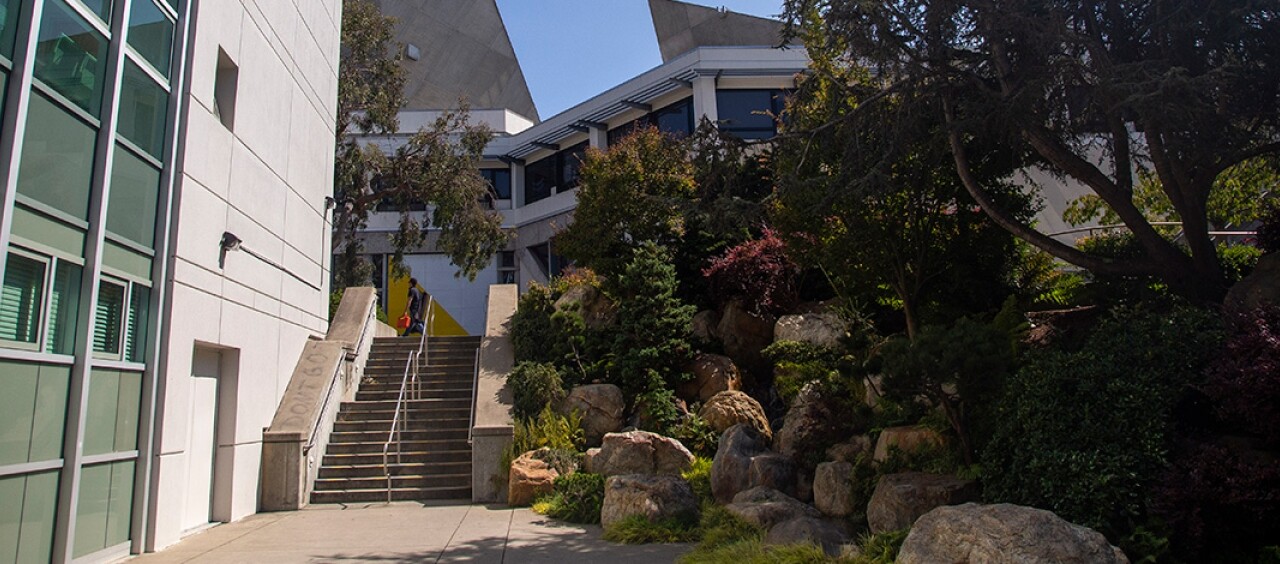Fine Arts Gallery presents new artwork reflecting on Ruth Asawa’s Garden of Remembrance on campus
Eighty-two years ago, Japanese American students from San Francisco State College were forced to withdraw from classes, some taken to prison camps. Twenty-two years ago, San Francisco State University dedicated a garden to honor the Japanese American experience of incarceration during World War II, especially that of the 19 students, and the resilience of this community after their release, designed by acclaimed artist Ruth Asawa. This year, the garden is the subject of further artistic exploration in new works on display in the Fine Arts Gallery on campus.
“Reflecting on Ruth Asawa and the Garden of Remembrance” features new commissioned works by artists Mark Baugh-Sasaki, Tina Kashiwagi, Paul Kitagaki Jr., Lisa Solomon and TT Takemoto.
The exhibition opens on Saturday, Feb. 24, with a reception from 1 to 3 p.m., and concludes on Saturday, April 6. The Fine Arts Gallery is open Tuesdays – Fridays, noon – 4 p.m. Admission is free.
Dedicated in 2002, the Garden of Remembrance is located between Burk Hall and the Fine Arts building. A waterfall cascading from behind the Cesar Chavez Student Center signifies the return of the internees to the coastline after the war. Ten large boulders in the grassy area next to Burk Hall represent each of the camps set up during World War II. The names of the 19 former SF State students expelled and the names of the camps are listed on a bronze, scroll-shaped marker. The marker also includes reproductions of official government documents regarding the internment.
In an essay for the exhibition’s catalog, artist and cultural producer Weston Teruya describes “Reflecting on Ruth Asawa and the Garden of Remembrance” as a “relationship of care” to family, community and shared stories.
“This collection of artworks is an intergenerational remembrance: a deep sensory reflection on ancestral practices and cultural traditions that are studied across veils of time and oceans, and the unearthing of elided histories and traumas from beneath stone memorials or out of the recesses of overlooked archives,” Teruya writes.
�
“Reflecting on Ruth Asawa and the Garden of Remembrance” is supported by the National Endowment for the Arts, The Henri and Tomoye Takahashi Charitable Foundation, the Andy Warhol Foundation for the Visual Arts and SF State’s Instructionally Related Student Activities Fund.
